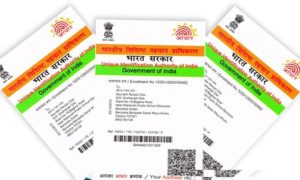The government of India is closely monitoring global energy markets and potential energy supply disruptions as a fall-out of the evolving geopolitical situation, Minister of State for Petroleum and Natural Gas Rameswar Teli said in a written reply to a question in the Rajya Sabha on Monday.
Crude oil prices have been soaring as the tension between Russia and Ukraine escalated and the former launching an attack has only added to the volatility. Benchmark Brent crude oil price hit a 52-week high of $139 a barrel, its highest since 2008. It has come off high and is now trading around $108 a barrel. India imports 80% of its oil needs.
Read More : Why you should be making your summer travel plans right now
A ministry statement citing the minister’s reply said that while there has been a steep rise in crude oil prices, the government is ready to take all appropriate action, as deemed fit, for mitigating market volatility and calming the rise in crude oil prices.
The government has earlier said that
Read More: Bank holidays this week: Full list of holidays in different states
if needed to boost supply and ensure price stability. Countries release crude oil from these reserves in coordinated moves at times when prices soar due to unusual circumstances. In November 2021, India, in consultation and along with major energy consumers, had agreed to release 5 million barrels from its SPR.
Commenting on the retail petrol and diesel prices, the minister said that they were market-driven and linked to the prices of the international products, and the decision on prices is taken by oil marketing companies (OMC).
OMCs have not increased the retail price for petrol and diesel since November, despite the steep rise in crude oil prices which puts their margin under pressure
He also mentioned that the central government had reduced excise duty on petrol and diesel by Rs 5 and Rs 10 per liter, respectively, effective from November 4th, 2021.
“The measure was aimed to give a further fillip to the economy and to boost consumption and keep inflation low, thus helping the poor and middle classes. Many states and union territories have also reduced the value-added tax on petrol and diesel subsequently,” the statement said. There was no comment of a likely cut in excise duty going ahead. The statement also reiterated that the government continues to modulate the effective price of liquefied petroleum gas (LPG) to consumers to insulate the common man from rising in international prices.





































